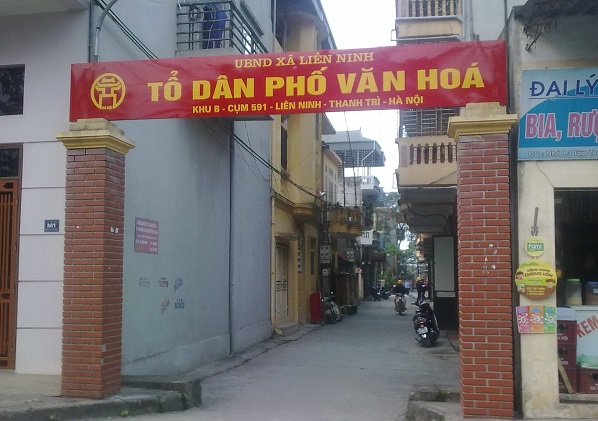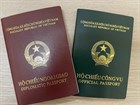Procedures for awarding the title "Village or street quarter of culture" as of January 30, 2024 in Vietnam
What are the procedures for awarding the title "Village or street quarter of culture" as of January 30, 2024 in Vietnam?– Truc Ha (Khanh Hoa)

Procedures for awarding the title "Village or street quarter of culture" as of January 30, 2024 in Vietnam (Internet image)
Regarding this issue, LawNet would like to answer as follows:
Procedures for awarding the title "Village or street quarter of culture" are prescribed in Decision 191/QD-BVHTTDL in 2024 as follows:
1. Application for consideration for awarding the title "Village or street quarter of culture" as of January 30, 2024 in Vietnam
The commune-level People's Committee prepares documents, including:
(1) Proposal for consideration of awarding the title "Village or street quarter of culture".
(2) Achievement report requesting consideration for awarding the title "Village or street quarter of culture".
(3) Minutes of the meeting to review the title "Village or street quarter of culture".
2. Procedures for awarding the title "Village or street quarter of culture" as of January 30, 2024 in Vietnam
- Village heads and residential group leaders send achievement reports requesting consideration for awarding emulation titles to the commune-level People's Committee.
- The Commune-level People's Committee organizes a meeting of the Emulation and Commendation Council at the same level to evaluate and decide on the list of villages and residential groups eligible to be considered for awarding the title "Village or street quarter of culture"; publicizes the information on the unit's website or other forms (if any) to collect people's opinions within 10 days;
- The Commune People's Committee prepares documents according to the provisions of Clause 2 of Article 7 of Decree 86/2023/ND-CP and submits them to the Chairman of the District People's Committee for decision.
- Within 10 days from the date of receiving complete documents according to regulations, the Chairman of the District People's Committee decides to award the title and certificate of "Village or street quarter of culture".
3. Standard framework for awarding the title "Village or street quarter of culture" as of January 30, 2024 in Vietnam
The standard framework for awarding the title "Village or street quarter of culture" is specified in Appendix II, issued with Decree 86/2023/ND-CP, as follows:
|
Standards |
Description |
|
I. Economic life is stable and developed |
1. Proportion of people of working age with jobs and stable income |
|
2. The rate of poor and near-poor households is low |
|
|
3. Developing traditional occupations or contribute to culture, technology, science and technology to the locality |
|
|
4. Participating and responding to economic, cultural and social development movements organized by the locality |
|
|
II. Cultural and spiritual life is healthy and rich |
1. Cultural houses, sports grounds, reading spots to serve the community in accordance with the practical conditions of the village and residential group |
|
2. Children of school age can go to school |
|
|
3. Organize cultural and artistic activities, sports, entertainment, and healthy entertainment |
|
|
4. Percentage of households practicing a civilized lifestyle in weddings, funerals, and festivals |
|
|
5. Carrying out reconciliation work well at the grassroots level; work to prevent and combat social evils |
|
|
6. Preserving and promoting cultural heritage values, traditional forms of cultural activities and folk sports of the locality |
|
|
III. Safe, friendly environment, clean and beautiful landscape |
1. Production and business activities meet the provisions of law on environmental protection |
|
2. Carrying out burial and cremation (if any) in accordance with the law and according to local planning |
|
|
3. Public entertainment places are renovated, protected and kept clean |
|
|
4. Participating in self-management in maintaining environmental hygiene and disease prevention and control |
|
|
IV. Complying with the Party's guidelines, policies and laws of the State; maintaining social order and safety; Actively participating in local emulation movements |
1. Actively participating in propagandizing, disseminating, and organizing the strict implementation of the Party's guidelines, policies, and laws of the State |
|
2. Organizing and deploying local emulation movements |
|
|
3. Community self-management organizations operate effectively |
|
|
4. Percentage of households in the area achieving the title of cultural family |
|
|
5. Implementing well the work of preventing and combating domestic violence/gender-based violence |
|
|
V. Having a spirit of solidarity, mutual support, and mutual help in the community |
1. Implementing patriotic campaigns and emulation movements launched by the central and local levels |
|
2. Caring for the elderly, children, people with meritorious services, people with disabilities, homeless people, homeless people and people in difficult circumstances |
|
|
3. Effectively deploying the models "Learning Family", "Learning Family Line", "Learning Community" and other models of culture and family at the grassroots level |
- Guidelines for registration and organization of legal knowledge examination on road traffic order and safety in Vietnam
- Contents of audit service quality control in Vietnam
- Acts in violation of Law on Independent Audit in Vietnam
- Tasks and solutions of the Scheme for connecting, authenticating, and standardizing the National Database on Insurance in Vietnam
- Program for the prevention and control of child accidents and injuries in Vietnam for the period of 2021 – 2030
- Guidelines on adjusting citizen information in the National Population Database in Vietnam
-

- Emergency response and search and rescue organizations ...
- 10:29, 11/09/2024
-

- Handling of the acceptance results of ministerial ...
- 09:30, 11/09/2024
-

- Guidance on unexploded ordnance investigation ...
- 18:30, 09/09/2024
-

- Sources of the National database on construction ...
- 16:37, 09/09/2024
-

- General regulations on the implementation of administrative ...
- 11:30, 09/09/2024
-

- Regulations on the environmental protection fee ...
- 08:30, 25/11/2024
-

- National Action Plan for digital economy development ...
- 08:00, 25/11/2024
-

- Responsibilities of officials of the Ministry ...
- 16:00, 23/11/2024
-

- 06 solutions to enhance the effectiveness of social ...
- 15:32, 23/11/2024
-

- Guidelines for registration and organization of ...
- 11:53, 23/11/2024

 Article table of contents
Article table of contents
